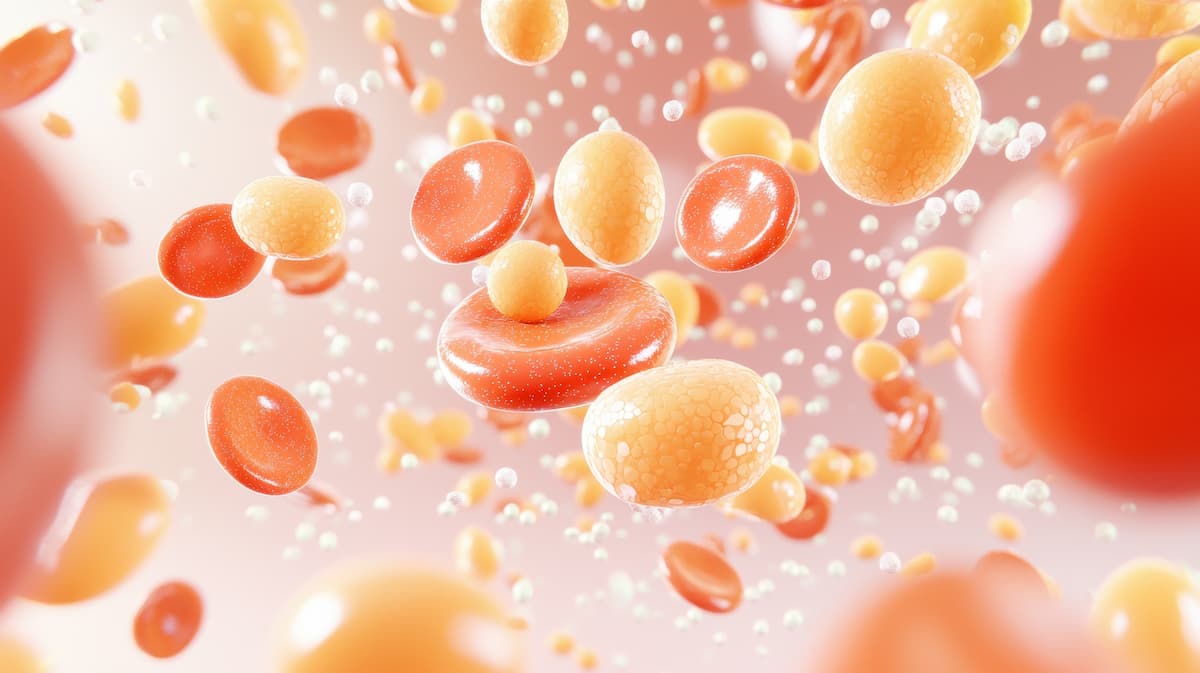News
Article
Maternal Pro-Inflammatory Diet During Pregnancy Linked to Increased Type 1 Diabetes Risk in Offspring
Author(s):
Key Takeaways
- A maternal diet high in pro-inflammatory foods during pregnancy is linked to a 16% increased risk of offspring developing type 1 diabetes.
- Type 1 diabetes involves immune-mediated destruction of insulin-producing cells, potentially starting in fetal life, with diet as a modifiable factor.
A maternal pro-inflammatory diet during pregnancy raises the risk of offspring developing type 1 diabetes, highlighting the impact of nutrition on early health.
An inflammatory diet during pregnancy could increase the child’s risk of developing type 1 diabetes (T1D), according to research from a Danish National Birth Cohort (DNBC). The study authors, who published their findings in the Journal of Epidemiology and Community Health, noted that a diet high in foods with the potential to promote low-grade inflammation was linked with a 16% heightened risk for every unit increase in a dietary measure of inflammatory food intake.1,2
Pregnant woman eating fresh vegetable salad, sitting on a sofa, healthy pregnancy concept - Image credit: Anna | stock.adobe.com

Type 1 Diabetes and Inflammation
T1D is an autoimmune disease where the body’s immune system destroys insulin-producing cells in the pancreas. This immune-mediated destruction, which is an inflammatory process, may begin in fetal life. Given the rising incidence of T1D—increasing by an average of 3% to 4% every year—environmental factors are under increasing analysis, particularly those influencing the immune system and inflammatory responses from early development. Researchers noted that diet is a modifiable factor that can influence low-grade inflammation, and a maternal diet high in pro-inflammatory foods during pregnancy is hypothesized to affect the child’s risk of developing T1D.1,2
“A low-grade inflammatory state secondary to an altered immune cell profile, which triggers pro-inflammatory pathways, is increasingly acknowledged as a critical early-life factor influencing offspring health,” the authors said in the journal. “The precise mechanisms by which diet modulates the immune response remain elusive, although some clues can be offered for specific dietary components.”1
Data From Danish National Birth Cohort
To further advance research on maternal inflammation diet and its link to T1D, researchers conducted a study based on data from the DNBC, which included pregnant women in Denmark from January 1996 to October 2002.1
Women were recruited for the study by general practitioners during their initial antenatal visit, typically between gestational weeks 6 and 10. Data for the DNBC was collected through 2 self-administered questionnaires, one at recruitment and a food frequency questionnaire around gestational week 25, alongside 4 telephone interviews and 3 blood sample collections. A total of 67,701 eligible mother-child pairs, excluding singleton live births where the mother had pre-existing T1D and type 2 diabetes or implausible energy intake, were included.1
The mean daily intake of 38 food groups from the food frequency questionnaire was calculated, and the reduced rank regression was applied to identify a dietary pattern linked with the inflammation biomarker. Additionally, children were followed from data of birth until T1D diagnosis or the last follow-up on June 1, 2018.1
The results identified that 281 children were diagnosed with T1D, and the mean Empirical Dietary Inflammatory Index (EDII) score was -0.1, ranging from -5.3 (anti-inflammatory) to 4.1 (pro-inflammatory) with an SD of 0.98. The maternal EDII score significantly correlated with offspring T1D risk, with covariate-adjusted analysis showing a 16% (95% CI 2% to 32%) increased incidence rate per 1-unit increase in the EDII score.1,2
“Of particular note is the fact that three factors during mid-pregnancy—a pro-inflammatory dietary pattern, gluten, and smoking—seemed to independently predict the child’s risk of type 1 diabetes. This suggests that mid-pregnancy may be a critical period during which the fetus is particularly susceptible to maternal lifestyle influences in relation to the individual’s later risk for developing type 1 diabetes during childhood or adolescence,” the authors concluded.1
The findings suggest that a maternal diet high in pro-inflammatory foods during pregnancy is connected with an increased risk of the offspring developing T1D.1,2
REFERENCES
1. Noorzae, R., Bjerregaard, A. A., Halldorsson, T. I., Granström, C., Brantsæter, A. L., Borge, T., Caspersen, I. H., Svensson, J., Stene, L. C. M., Antvorskov, J. C., Giovannucci, E. L., Christiansen, M., Pociot, F., & Olsen, S. F. (2025). Association between a pro-inflammatory dietary pattern during pregnancy and type 1 diabetes risk in offspring: prospective cohort study. Journal of Epidemiology & Community Health. https://doi.org/10.1136/jech-2024-223320
2. ‘Inflammatory’ diet during pregnancy may raise child’s diabetes type 1 risk. EuerkAlert!. News release. July 1, 2025. Accessed July 10, 2025. https://www.eurekalert.org/news-releases/1089224
Newsletter
Stay informed on drug updates, treatment guidelines, and pharmacy practice trends—subscribe to Pharmacy Times for weekly clinical insights.





